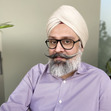𝐓𝐇𝐄 𝐅𝐈𝐑𝐒𝐓 𝐖𝐄𝐃𝐃𝐈𝐍𝐆 𝐀𝐍𝐍𝐈𝐕𝐄𝐑𝐒𝐀𝐑𝐘 𝐄𝐗
I spent the night searching the names heard earlier on Google Maps: “Rupsi” and “Chatrail” locations showed up in the northeastern state of Assam, and the mountainous region of Himachal Pradesh, respectively. ‘This is a bloody wild goose chase,’ I thought. But the day had finally arrived to verify the instructions received from evening prior. I called my parents early morning to inform them that I may have found the location of the temple, and would be on my way later in the day. My mother immediately said, ‘When you face the deity you must ask her for forgiveness for all the mistakes and harm done by our past generations. Also pray for peace and contentment for our current generations and those yet to come.’
Audy and I had limited our visits for the afternoon to the temple and the lake. The initial drive through the outskirts of the city had me arrive at a visibly obvious conclusion: this is barren wasteland. There was absolutely nothing around. I had told the driver to stop at a small shop so that we could pick up some chocolate and biscuits for children we’d find near the temple but not one was seen for the first twenty minutes of the ride.
‘How far is Rupsi? Are you sure we are going the right way?’ I said to the taxi driver.‘Yes brother. We are almost there. I will take you to Chhatrel and you can guide me thereafter.’ We arrived at what seemed to be the intersection Bharat mentioned some ten minutes later. There were only a handful number of houses in this small village and after taking a right turn and driving for some five kilometers, a sign board written in Hindi mentioned that the temple was only 500 meters away after taking a left to go up the hill. It was also clearly written that this was the temple of the Bhatia clan.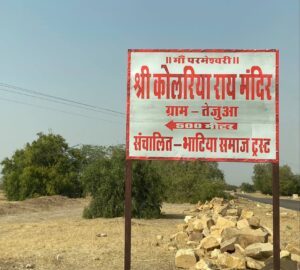 My emotions were numbed. The parking area was empty and I wondered if the temple was even open. As we walked up the stairs we heard someone yelling from a distance and turned to see an aged man with a frail physique, whom we had woken up from an afternoon siesta, telling us to wait at the main door of the temple until he arrived. He asked us what we were doing there and I said:‘I am a Bhatia and I came to meet the deity.’‘Just to be clear, you don’t need to perform any specific rituals, correct?’ said Maharaj, the temple priest.‘No, why do you ask?’‘There was a group that came in this morning and they wanted to sacrifice a goat, I thought you were one of them’ he said.‘Sorry, what did you just say’, I asked.‘We don’t allow that here anymore. Although we do give goat meat to devotees as an offering during our annual gathering, slaughtering at the premises is now against the law,’ he said while unlocking the door.
My emotions were numbed. The parking area was empty and I wondered if the temple was even open. As we walked up the stairs we heard someone yelling from a distance and turned to see an aged man with a frail physique, whom we had woken up from an afternoon siesta, telling us to wait at the main door of the temple until he arrived. He asked us what we were doing there and I said:‘I am a Bhatia and I came to meet the deity.’‘Just to be clear, you don’t need to perform any specific rituals, correct?’ said Maharaj, the temple priest.‘No, why do you ask?’‘There was a group that came in this morning and they wanted to sacrifice a goat, I thought you were one of them’ he said.‘Sorry, what did you just say’, I asked.‘We don’t allow that here anymore. Although we do give goat meat to devotees as an offering during our annual gathering, slaughtering at the premises is now against the law,’ he said while unlocking the door. 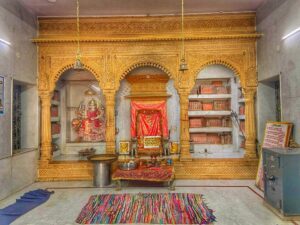 Audy observed my eyes flicker and asked for a translation. She was just as surprised to hear of such an exotic tribal ritual. I entered the temple and was instantaneously drawn to the deity after ringing the bell. I sat on the floor facing the goddess in silence and soothing bliss for fifteen minutes, knowing that she would listen to the thoughts and prayers in mind. My third-eye was beating humbly. As I stood up, Maharaj asked what I had wished for.
Audy observed my eyes flicker and asked for a translation. She was just as surprised to hear of such an exotic tribal ritual. I entered the temple and was instantaneously drawn to the deity after ringing the bell. I sat on the floor facing the goddess in silence and soothing bliss for fifteen minutes, knowing that she would listen to the thoughts and prayers in mind. My third-eye was beating humbly. As I stood up, Maharaj asked what I had wished for. 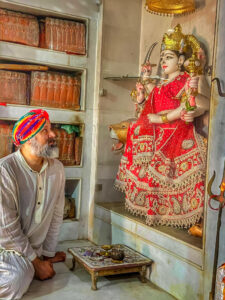 ‘Forgiveness and hope,’ I said, ‘from the past and for the future generations of my family.’‘Beautiful,’ he responded with a smile, ‘Come here, open your hands.’ He took wheat grains arbitrarily from a steel plate which sat adjacent to the deity, and with his fist poured into both my hands. He told me to count them and to put them back into plate in pairs to see if he had given me an odd number of grains. He had. Seventeen, and as I removed two at a time and was left with one, he interjected, ‘Joyous occasion! Blissful accomplishment! You have traveled here from a distance to see her. Being left with only one grain and that too from a prime number signifies that she has welcomed you back home and your wish has already been granted to you!’ he said confidently.
‘Forgiveness and hope,’ I said, ‘from the past and for the future generations of my family.’‘Beautiful,’ he responded with a smile, ‘Come here, open your hands.’ He took wheat grains arbitrarily from a steel plate which sat adjacent to the deity, and with his fist poured into both my hands. He told me to count them and to put them back into plate in pairs to see if he had given me an odd number of grains. He had. Seventeen, and as I removed two at a time and was left with one, he interjected, ‘Joyous occasion! Blissful accomplishment! You have traveled here from a distance to see her. Being left with only one grain and that too from a prime number signifies that she has welcomed you back home and your wish has already been granted to you!’ he said confidently. I noticed goose bumps all over his arms when he then immediately handed me a ledger to sign my details in. My emotions remained numb but my levels of awareness had begun to rise. After he showed me the library of notebooks which also had been autographed previously, the first being from 1853, he began telling me about the two events which led to the diaspora of our clan. The first was around the time when the royal family of Jaisalmer signed a treaty with the British just over two centuries earlier, and the second was during a severe drought which caused extreme famine at the end of the 19th century.
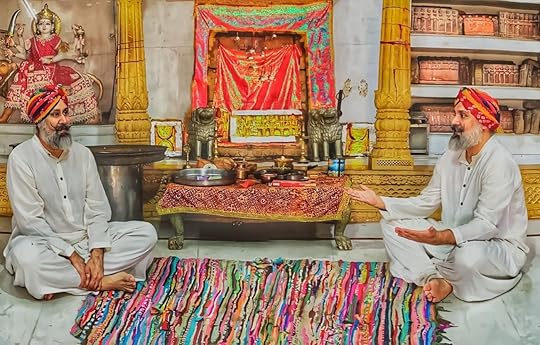 [image error]
[image error]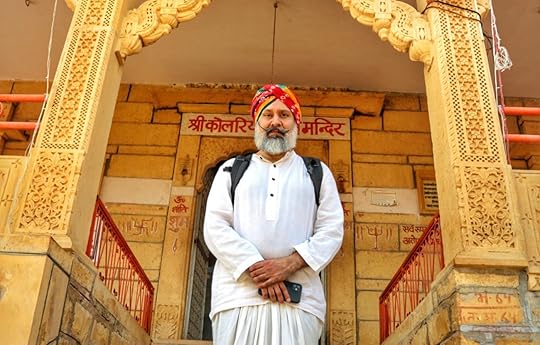
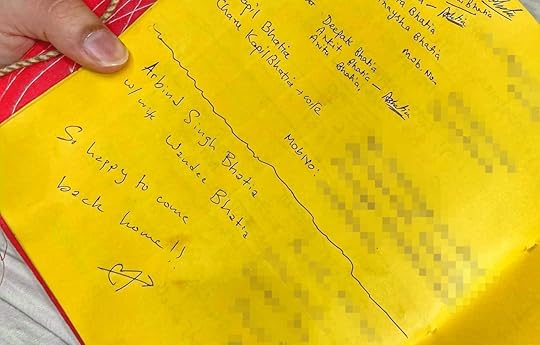
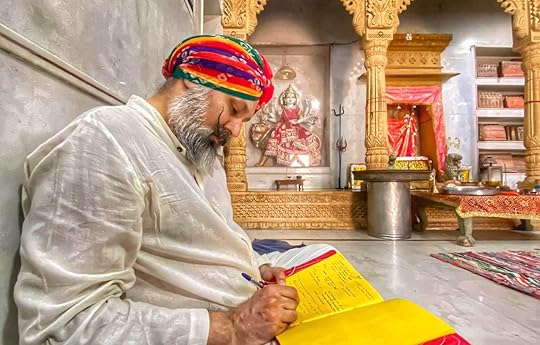 Previous Next
Previous Next When I asked how he knew all of this, he mentioned that these stories had been told since the temple began congregations of returning Bhatias over the last one hundred and fifteen years, descendants of whom are now funding donations from Canada, Dubai, Kenya as well as various parts of India to ensure this temple’s upkeep. Maharaj and his forefathers were the bearers of this information with the responsibility to share it with members of the clan who sought it. I remembered my family tree which transitioned from birth in Jaisalmer to Sialkot in the early 1800s. It had been complete guesswork prior to learning of this, but the pieces of my family history had now begun falling into place.
‘So where is Bhati Village,’ I asked.‘Come with me, son,’ We stepped out to the entrance of the temple which stood at a height. He pointed in one direction, northeast, while observing me and said, ‘Look to as far as you can see,’ and then all of a sudden, he pointed southwest and then said, ‘look again…this all is the land of the Bhati dynasty of which you and all Bhatias come from. Your perception of a Bhati Village is just an illusion.’ He showed us the same deity in his living quarters and after making a donation to the temple, we left.I had no words to say. At the intersection near Chattrel Village we stopped to find children to give them chocolate and biscuits and that’s when I saw how poverty stricken this area was. We found a child playing outside of his house and after offering him sweets, the news spreads quickly throughout the village.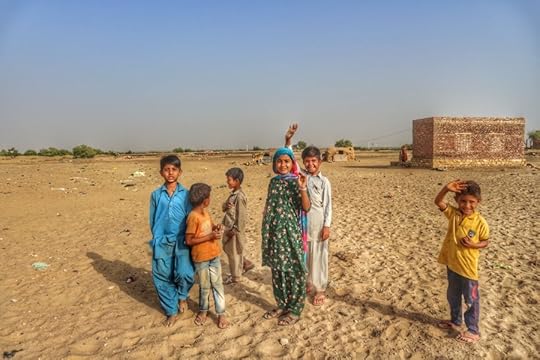
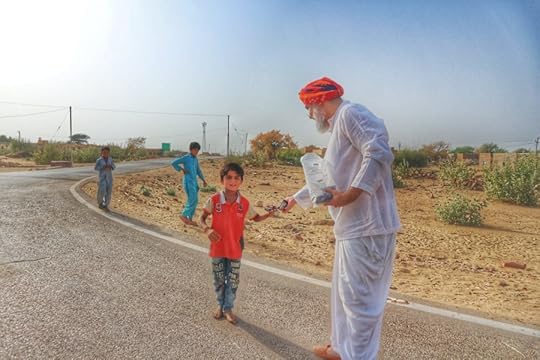
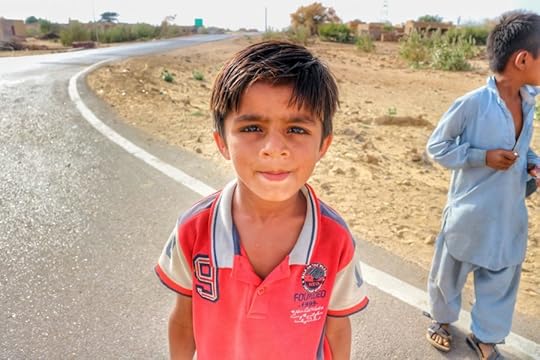
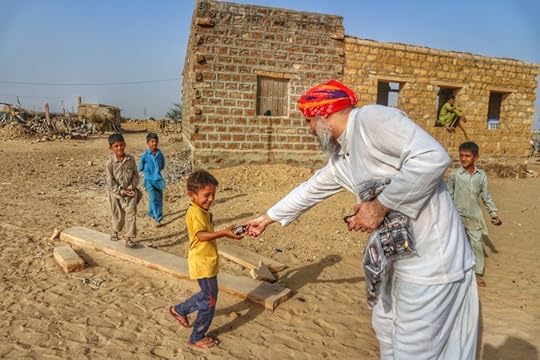
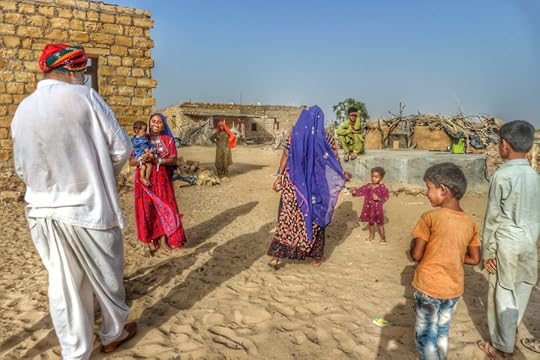
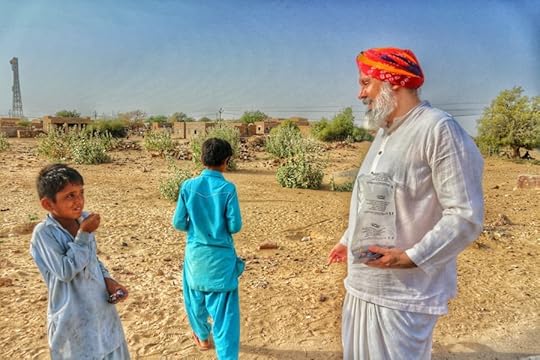 [image error]
[image error]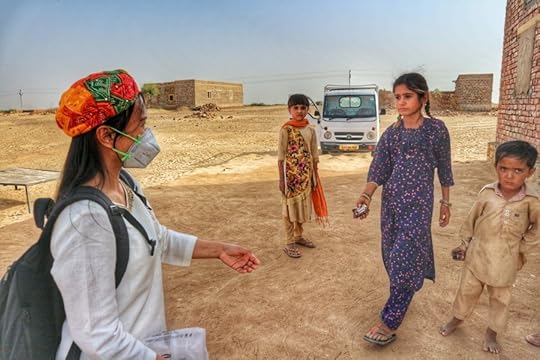 [image error]
[image error]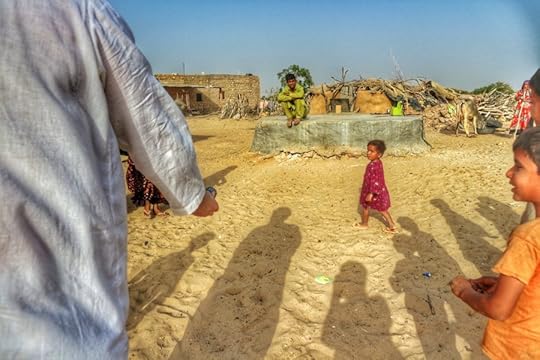
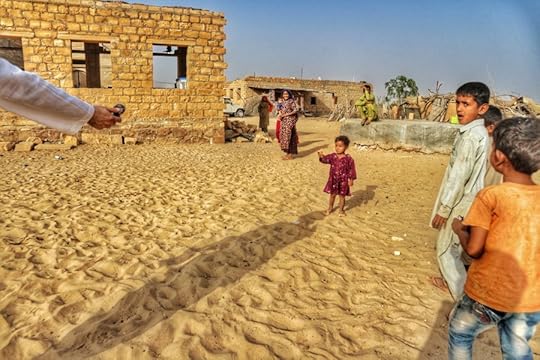 Previous Next
Previous Next Hoards of children came, some running excitedly others walking hesitantly, and seeing their smiles warmed a heart which felt troubled. How were these children being educated? There is not even a school anywhere in sight. We stopped briefly in another small village in Roopsi and gave everything we had until beginning the drive back the drive back to the city.
[image error]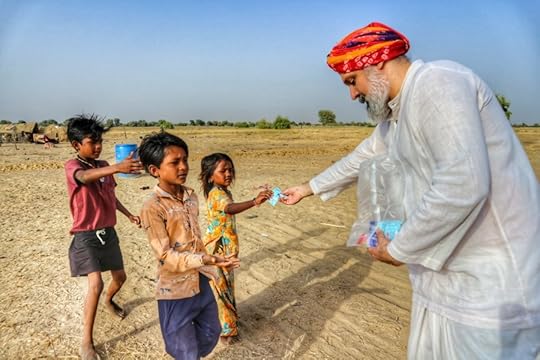 [image error]
[image error]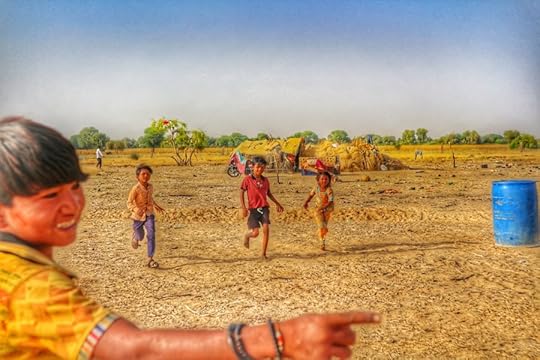 Previous Next ‘Change of plans. I want to go to Bada Bagh,’ I said to the driver.‘Sir, you just went there yesterday and spent a couple of hours. There’s nothing more at that sight to see which you haven’t already.’‘Binny, I want to go to Gadisar Lake and take pictures,’ said Audy.‘We will. I don’t know why but there’s something telling me to go back there. I can’t explain it.’ Upon arriving at the crematorium and burial site of the royals, two young shutterbugs from Jodhpur saw us asked if we could be photographed as I attempted to take Audy to where we had sat the day before.
Previous Next ‘Change of plans. I want to go to Bada Bagh,’ I said to the driver.‘Sir, you just went there yesterday and spent a couple of hours. There’s nothing more at that sight to see which you haven’t already.’‘Binny, I want to go to Gadisar Lake and take pictures,’ said Audy.‘We will. I don’t know why but there’s something telling me to go back there. I can’t explain it.’ Upon arriving at the crematorium and burial site of the royals, two young shutterbugs from Jodhpur saw us asked if we could be photographed as I attempted to take Audy to where we had sat the day before. 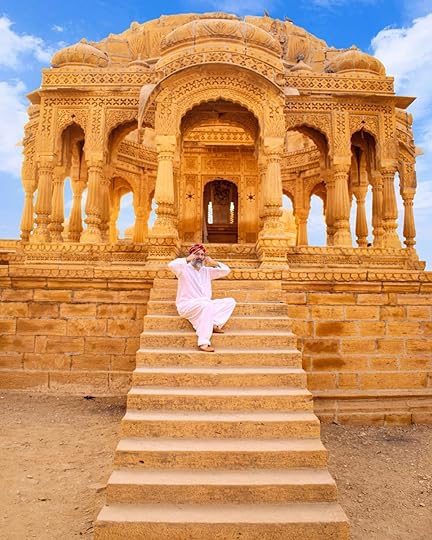
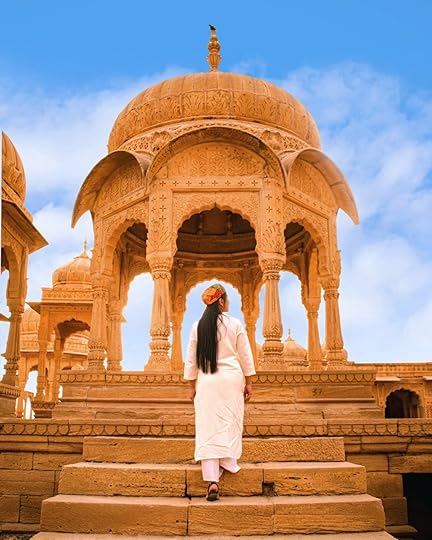
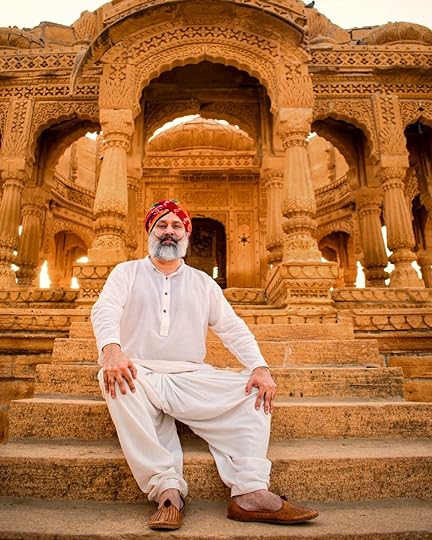 Previous Next
Previous Next After sitting quietly for a little while, I reached into her bag and took out Marriage In The Time Of Corona and told her that I wanted to reread a few passages. She suggested I recite them out loud so that it could be recorded, and that made me think carefully on my choice of pages. The first one chosen was from Chapter 2, page 26-28, “The Rap Proposal” and the second from the last paragraph of the story in Chapter 7; both taken in one reading with a video requiring no edits.
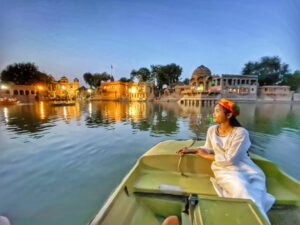
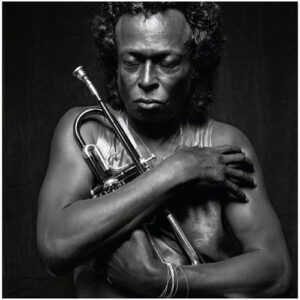 [Miles Davis] “Flamenco Sketches” https://music.apple.com/…/flamenco-sketches/268443092… I had this song on repeat with my head plummeted in the pillow face down, and after a couple of rounds, Audy asked me what was wrong. I was mute and could only muster enough energy to mention that if she just listened to the music, then it would help her know how I truly felt. I was just as less talkative the following day. We checked out of the hotel and while having breakfast I thought that this may have not been the most ideal way to spend our first anniversary. Relaxation and fun in the Nicobar Islands, not a goal-oriented adventure in Jaisalmer, would have probably been a better choice, I thought. Or was I conditioned to believe that? I peeked out the window to bid adieu as we took off from Jaisalmer Airport and it suddenly hit me. That this desert land is desolate. Its royal history has become something for tourists to consume and that’s what feeds its population, not mother earth. With the economic viability being as bleak as it is today, were things better here back in 1707, the birth year of our first known ancestor Baba Jassa as per the family tree? It couldn’t have been. That’s why we were bandits on the Indian Silk Route. The priest at the temple may have been kind to use the word ‘diaspora’, but, in actuality it was more likely an exodus. Perhaps my forefathers left these barren wastelands for the greener pastures of Sialkot in Pakistan in the early 19th century, where word of mouth through generations tells us that we became farmers. By the mid-1800s we were land owners in Lahore where my father was born; in fact we amassed wealth as moneylenders, by taking land registries as collateral against cash given, and acquiring property after borrower defaults. Not much different from what I have spent my career doing, of course in a legal manner however. And after the partition, once the British Raj’s control was dismantled in 1947 and India gained independence, how we left everything in Lahore when my father was just two years old and moved to New Delhi, where I was born. Time, and the things it does to families; the distance it creates from generation to generation, the memories which remain, the yearning to know the unknown. We are travelers through a limited construct of space. Just as there is growth and likely evolution as a product of circumstance, there also must undeniably be downfall and destruction given the preferences of choice – it is the order of the universe, the nature of the nameless. I just wish I could have discovered more. As I started piecing the travels in my lifetime and how Audy has joined me on this voyage for my remaining years, I realized how far we had already come, yet how much further we both still must go. ‘What is going on in that mind of yours? Say something Binny!’ exclaimed my lovely wife. I looked over at her and said, ‘I think there’s a direct correlation between your bohemian-style fashion sense and the gypsy soul I have inherited from my ancestors.’‘Now that, my husband, is a story to write about,’ she said.I came home physically, mentally and emotionally exhausted to my parents. My father could sense it. He said it seemed as though I had returned home after completing a laborious task rather than celebrating a jolly occasion. And he mentioned with admiration, that I was the first known member of our entire extended family, living or dead, to have recorded this trip to our ancestral home, and that, within itself, was a considerable achievement. So time perhaps had me personally evolve from being that teenaged boy who operated in a manner “old school”, into a man that was simply old fashioned.
[Miles Davis] “Flamenco Sketches” https://music.apple.com/…/flamenco-sketches/268443092… I had this song on repeat with my head plummeted in the pillow face down, and after a couple of rounds, Audy asked me what was wrong. I was mute and could only muster enough energy to mention that if she just listened to the music, then it would help her know how I truly felt. I was just as less talkative the following day. We checked out of the hotel and while having breakfast I thought that this may have not been the most ideal way to spend our first anniversary. Relaxation and fun in the Nicobar Islands, not a goal-oriented adventure in Jaisalmer, would have probably been a better choice, I thought. Or was I conditioned to believe that? I peeked out the window to bid adieu as we took off from Jaisalmer Airport and it suddenly hit me. That this desert land is desolate. Its royal history has become something for tourists to consume and that’s what feeds its population, not mother earth. With the economic viability being as bleak as it is today, were things better here back in 1707, the birth year of our first known ancestor Baba Jassa as per the family tree? It couldn’t have been. That’s why we were bandits on the Indian Silk Route. The priest at the temple may have been kind to use the word ‘diaspora’, but, in actuality it was more likely an exodus. Perhaps my forefathers left these barren wastelands for the greener pastures of Sialkot in Pakistan in the early 19th century, where word of mouth through generations tells us that we became farmers. By the mid-1800s we were land owners in Lahore where my father was born; in fact we amassed wealth as moneylenders, by taking land registries as collateral against cash given, and acquiring property after borrower defaults. Not much different from what I have spent my career doing, of course in a legal manner however. And after the partition, once the British Raj’s control was dismantled in 1947 and India gained independence, how we left everything in Lahore when my father was just two years old and moved to New Delhi, where I was born. Time, and the things it does to families; the distance it creates from generation to generation, the memories which remain, the yearning to know the unknown. We are travelers through a limited construct of space. Just as there is growth and likely evolution as a product of circumstance, there also must undeniably be downfall and destruction given the preferences of choice – it is the order of the universe, the nature of the nameless. I just wish I could have discovered more. As I started piecing the travels in my lifetime and how Audy has joined me on this voyage for my remaining years, I realized how far we had already come, yet how much further we both still must go. ‘What is going on in that mind of yours? Say something Binny!’ exclaimed my lovely wife. I looked over at her and said, ‘I think there’s a direct correlation between your bohemian-style fashion sense and the gypsy soul I have inherited from my ancestors.’‘Now that, my husband, is a story to write about,’ she said.I came home physically, mentally and emotionally exhausted to my parents. My father could sense it. He said it seemed as though I had returned home after completing a laborious task rather than celebrating a jolly occasion. And he mentioned with admiration, that I was the first known member of our entire extended family, living or dead, to have recorded this trip to our ancestral home, and that, within itself, was a considerable achievement. So time perhaps had me personally evolve from being that teenaged boy who operated in a manner “old school”, into a man that was simply old fashioned. “I’m Old Fashioned” by
John Coltrane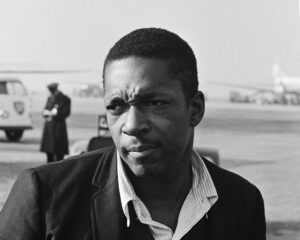 [John Coltrane]
[John Coltrane] https://music.apple.com/…/im-old-fashioned/724748588…
... Post Script Notes: After detailed discussions with my Father once returning and sharing observations, my final assessment on our ancestry was validated. As for adopting Bhatia as our surname was concerned, we determined that it may have always been used but never recorded in our family tree. Similarly, the name Singh begins appearing around 1850 in the tree. It cannot be concluded that we converted to Sikhism at that point as given that we are Rajputs, Singh as middle name is commonly used even today by Hindus. So when we converted to Sikhism will always remain a question mark, however, we can confirm with a high-level of confidence that at least for six generations prior to me, we were Sikhs. Acknowledgements: Sirous Thampi – The “old-school” labeler from the opening lines of Part IManreet Deol– Jeweler Extraordinaire and
Manifest Designowner from Part II
Kuldip Mammaji and Jagjit Mammiji for leading me to Jaisalmer.Deepinder G Singhand Gurinder Singh – for pampering Audy and I silly prior to the Jaisalmer leg of our trip from Part II
 Leave comment below. Spread the word!
Leave comment below. Spread the word! The post 𝐓𝐇𝐄 𝐅𝐈𝐑𝐒𝐓 𝐖𝐄𝐃𝐃𝐈𝐍𝐆 𝐀𝐍𝐍𝐈𝐕𝐄𝐑𝐒𝐀𝐑𝐘 𝐄𝐗𝐏𝐄𝐑𝐈𝐌𝐄𝐍𝐓 𝑷𝒂𝒓𝒕 𝑽 first appeared on ARBIND BHATIA.

